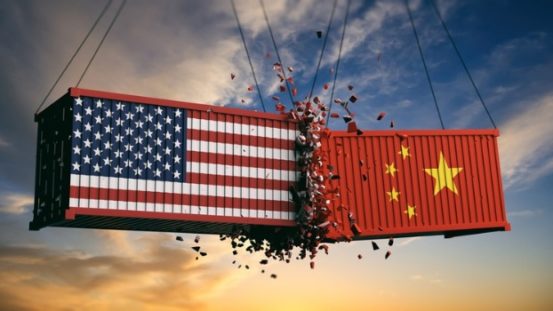April 01-15, 2018
The economic globalisation and trade liberalisation received a big blow last month,-with a trade battle cry between two economic giants-US and China. On 22nd March 2018, The US imposed steep import tariffs on steel and aluminium from China.Another 1,300 Chinese products were identified for inclusion in the tariff list. China on its part retaliated with a tariff of $3 billion on US products. Further, China wants to scale down its financial exposure, mainly in the form of acquisition of treasury bills and bonds from the US. This trade war is bound to hurt global economic productivity and growth. The repercussions will be more severe for developing and least developed economies of Africa.
Majority of African economies are in distress, ridden with debt crisis, weak currencies, and soaring trade deficits. Trump did not spare Africa also from his ‘America First” stance reflected in the ongoing US-China trade war. This was clearly visible when US threatened to lift the duty free Privileges under African Growth and Opportunities Act (AGOA) to East African Community (EAC) when these countries decided to close doors on second hand clothes and leather goods from US.
The ban reportedly will lead to loss of US jobs and environment crisis with tonnes of textile wastes in US.
Uganda, Kenya and Tanzania succumbed to the US pressure and backtracked. Rwanda was the only country which continued its stand. US retaliated by suspending duty-free privileges to Rwanda under AGOA. While the bold stand of Rwanda needs to be applauded, it must be noted that the benefits accrued under AGOA for Rwanda are relatively small accounting for $43.7 million, compared to Kenya’s almost $600million.
Decades ago, Africa was home to a vibrant textile industry creating jobs for millions. For instance, Democratic Republic of Congo had a thriving textile industry which catered to the African market. African Textile Industry witnessed a down fall due to a host of reasons including political, and economic causes. The vacuum left gave way to import of second hand clothing.
The stand-offs between the two economic giants present some opportunities also. Already, China has a big footprint in Africa. The current situation may bring Africa and China even closer with more investments and trade flow.
China has imposed 15% tariff on several US agricultural products. This opens opportunities for African countries like South Africa that can cater to Chinese demand for wine, citrus apples, pears, mango, cashews, almonds etc. similarly, China sources approximately 60% of global soya bean production out of which 40% is sourced from US, which again offers opportunity for soya producing African countries.
Analysts say that both US and China cannot afford this trade conflict and negotiations to diffuse tensions will follow. But till then, African economies may have to juggle with their challenges. The current crisis underlines that the key to Africa’s economic prosperity is with Africa only. The proposed Regional integration under AFCFTA, African continental Free Trade Agreement, will be the road to Africa’s Economic progress.





